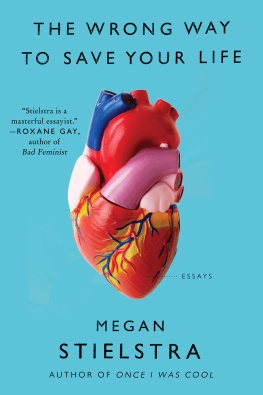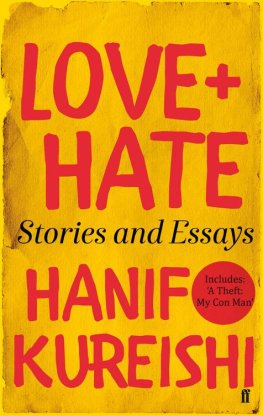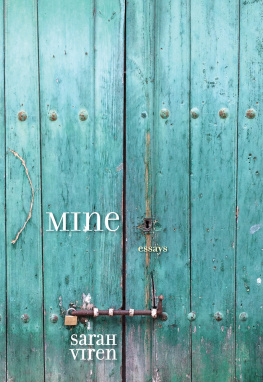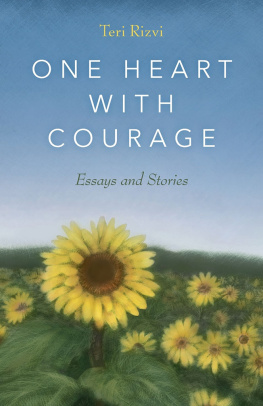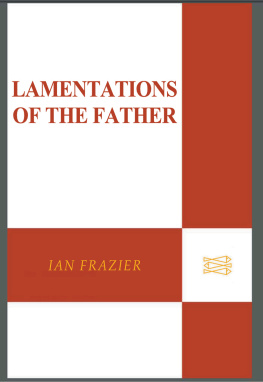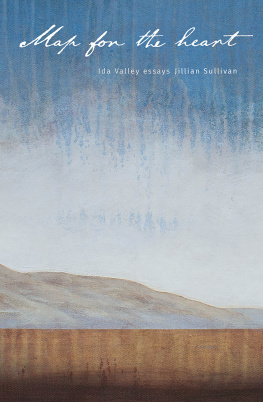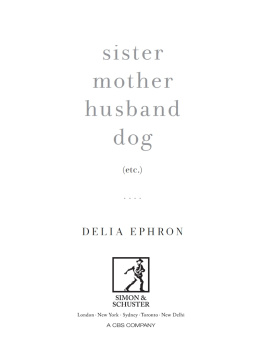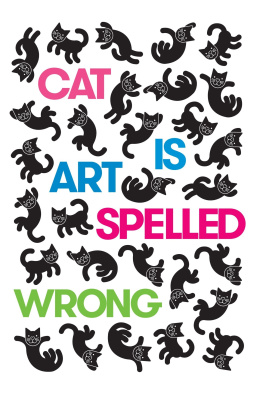Contents
For when you are afraid.
Stories can conquer fear, you know. They can make the heart bigger.
Ben Okri
A lifetime or two ago, I lived with my friends Heather and Pete on Armitage Avenue, just west of Western. Our apartment was a unicorn so far as renting in Chicago: an enormous open loft, wallpapered with windows and cheap as hell. A hallway snaked back to two smaller roomsone for me, one for Heatherand, behind those, what Realtors call the master bedroom: huge, with high ceilings and a skylight. This was Petes room. He paid double. He had a nine-to-five job in an art studio with a salary and health insurance, which to me seemed so grown-up and impossible, especially for an artist, but he did it. He made art and he made a living, and if he could, I could. At twenty-three I needed that belief like food and sex and shelter.
When he let me, Id sit on the floor in his room while he painted, reading aloud from the novels I was studying and sometimes, if I felt brave, my own nervous starts at stories. I loved being there, part of it, the process, the mess, tubes and brushes and sketches and ashtrays overflowing so hed ash in empty beer bottles or in mugs filled with days-old coffee or mugs filled with paint water or mugs filled with whiskey or wine. I dont think we owned glassware. I dont think we washed dishes. It made more sense to avoid the stacked piles in the kitchen sink and, instead, grab a mug off Petes floor and scrub out the moldy coffee cream in the bathtub. He didnt have any furniture, just a mattress on the floor, a cage for his iguana, and canvases: finished pieces, half-done stuffstill dripping, newly stretched and ready to go. He painted bodies. He painted abstract. He painted me, circus posterstyle, biting the head off a live chicken after I read him the scene from Geek Love where Aqua Boy preaches to the devoted: If they love you then it must mean youre all right. You poor baby. You just want to feel all right.
Read that part again, he said, pointing at me with a paintbrush. He was muscle and sinew, arms full sleeved with black geometric tattoos. He had a long, pointy goatee a decade before hipsters and whats it called? Beard art. He wore a belligerent uniform of black jeans and no shirt, never a shirt. He must have owned some, at least for work, or our shitty Chicago winters. Band-logo stuff, probably: Slayer and Black Sabbath and Behold! The Living Corpse. Im trying to see him: reaching down the line of my life, memory as portraiture, a still shot instead of a moving picture. He smelled like cigarettes. He built me bookshelves. Hed make both fists into devil horns, yell metal ! and stick his tongue down past his chin. He pointed at me with a paintbrush: Poor baby. You just want to feel all right.
For my birthday, he took me to the Art Institute. We were there for hours. He taught me to see. I hope that doesnt sound pretentious. It was actually a gift. We went painting by painting: color, context, scale. Id be ready to move on and hed tell me to wait, look again, look closer. What do you see? hed say. How was it made? When was it made? What was happening in the world when it was made? How did what was happening influence what was being made? What are you going to make? and When are you going to start?
Now, Id say. Today.
The questions we ask about art are equally vital in examining the self: memory and assumption, love and fear. Id build on this vocabulary over two decades teaching writers and teaching teachers, but I first started thinking about it with Pete in the Art Institute, standing in front of Egon Schiele, Francis Bacon, Toulouse-Lautrec. My favorite is Sky Above Clouds IV, a twenty-four-foot oil painting by Georgia OKeeffe. It hangs above the back gallery staircase, the ceiling diffused sunlight. Its breathtaking: blue and pink and a sea of white clouds like cobblestones. I see it like a road. A path. You can walk down the stairs or up into the sky.
The truth? I was in love with him.
How could I not be, there under the clouds?
Nothing happened, of course. He was my roommate. He was my friend. He didnt like me like that. It would have gotten weird. Id been hurt before. Everything ends badly. Breakups are awful. Divorce requires paperwork. Juliet dies in the end. The iguana smelled. I hated metal. What if he didnt feel the same and I had to stop imagining us together, the video on demand as I fell asleep at night? Uncertainty is better, wrote Chekhov. At least then theres hope. What if we did get together and I hurt him? I didnt want to hurt him. I loved him. So much so that Id bug him about the cigarettes and hed tell me to back off and Id quote statistics about lung-related death and hed say we could all go at any time, wiped out by a bus, a train, an explosion like lightning, a heart attack on a mountain, a tumor in the brain, the skin, the breast, by your own hand when its all too much, or an AR-15 in a school or park or street so who gives a shit about a cigarette, whats healthy or right or fair?
There are so many reasons not to try.
They all start with Im scared.
* * *
I started writing about fear in 2008. It seems impossible that this period is already history: the Great Recession, a national and global economic decline beginning with the burst of an eight-trillion-dollar housing bubble, dot dot dot.
It sounds like a movie. A novel. Something to read about, not live through.
My husband and I had just gotten married, just bought a condo, just had a baby, the one-two-three punch of the American dream. We were making it: me in education, him in web design. Thensnap your fingersthe market crashed. We couldnt sell. We couldnt rent. We couldnt keep up with the mortgage, which had less to do with the economy and more with me being, quite literally, on the floor. There are so many metaphors about depression in general and postpartum specifically: mountains, climbing over; waves, crashing down; fog, moving through; storms, up up and away. I appreciate the need to find common language, to name the experience and feel less alone in its mess, but I have a hard time seeing the poetry. It sucked, it sucked, it sucked.
Our condo was across the street from the Aragon Ballroom, a legendary rock club in Uptown on Chicagos North Side. Bands played every weekend. Fans lined up around the block. You could hear the music through my windows, a weird sort of soundtrack to the most scared Ive ever been. Marilyn Manson and my baby wont eat. Smashing Pumpkins and my baby wont sleep. Yeah Yeah Yeahs and the banks call every day: Do you know youre overdue? Do you know the consequences of being overdue? Are you sure? I was scared to leave the house, scared I would hurt myself. Something is wrong, I can feel it, no its not all in my head.
At one point, I opened my journal and wrote: i need help .
* * *
I climbed the stairs to the apartment on Armitage and covered my ears. The music from Petes room was so loud the apartment vibrated; a car with the bass cranked, a strobe light with sound. In my memory it was Rammstein. German industrial metal. They play a subgenre of rock called neue deutsche Hrte or new German hardness; their name translates to ramming stone. Thats what my bathroom sounded like: hardness, ramming, a jackhammer.
I went into the bathroom where Heather was getting ready: mascara and lipstick and wild red hair. She worked late-night bar shifts; I worked daytime brunch. We saw each other at 3:00 a.m. if I was up writing or 3:00 p.m. before she ran out the door. We watched Ab Fab and wuxia films. She took me to buy my first vibrator and my first window air conditioner, necessary appliances for the modern woman. Im trying to see her: reaching down the line of my life. She smelled like honey. She loaned me dresses. She gave me music: hip-hop, house, and R&B, which in 1998 meant

